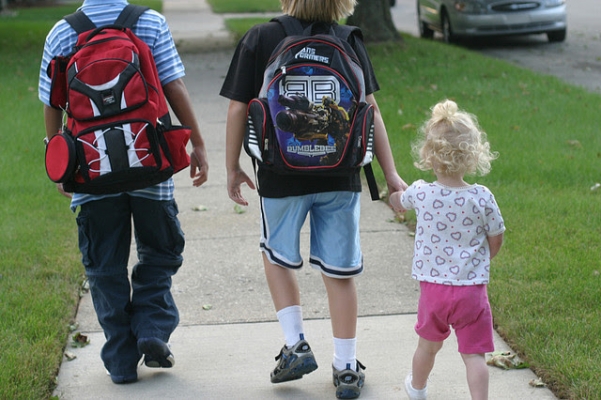
Watch condensed webinar preview video
Watch full webinar video
View slides
Findings from a Quasi-Experimental Study of Boltage Encouragement Programs
Much of the research on children’s travel to and from school has studied the impacts of the built environment. This three-year study contributes to current literature by investigating the role of socio-psychological factors in determining children’s travel behavior.
“Boltage” is a novel intervention program that incorporates technology and social incentives to encourage children to walk and bike to school. By evaluating Boltage programs that have been implemented in two elementary and two middle schools, researchers conducted a quasi-experimental study to examine how peer influences, incentives, and perceived social acceptance have affected the students’ active school travel.
The project used data collected through Boltage scanners, focus groups, and surveys to identify attitudinal and behavioral changes following the implementation of Boltage programs and compare the changes reported from eight other comparable schools where no such interventions were applied. Analysis findings provide evidence that the Boltage programs are effective in improving the rates of children walking or biking to school.
Knowledge gained from this project can inform professionals and advocates who hope to develop effective intervention programs for active school travel in three ways:
1. Interventions should target students living within a short distance to schools (less than 1 mile or so) and parents who exhibit favorable attitudes;
2. Interventions should focus on the socializing benefits afforded by children walking or biking to school together when promoting active school travel and create socializing opportunities in the intervention programs;
3. Incentive-based interventions have greater effects on children of younger age and the design of an intervention program should focus on helping children and parents identify suitable approaches to active school travel.
Yizhao Yang is an associate professor in the department of Planning, Public Policy and Management at the University of Oregon. Professor Yang holds a Bachelor of Architecture from Tianjin University (1995), China; Master in Building Science from Tsinghua University (1998), China, and Master (2001) and Ph.D. in urban planning from Cornell University (2007). Dr. Yang’s research interests focus on the social and behavioral impacts of physical planning and design, particularly on issues related to urban-form characteristics affecting “green” behavior and sustainable living. Dr. Yang has conducted research projects studying people’s environmental perception, quality of life, physical activity, residential location choice, and active school travel. Her research has been supported by the US Department of Housing and Urban Development, US Census Bureau, Oregon Transportation Research Consortium, and National Institute of Transportation and Communities.
